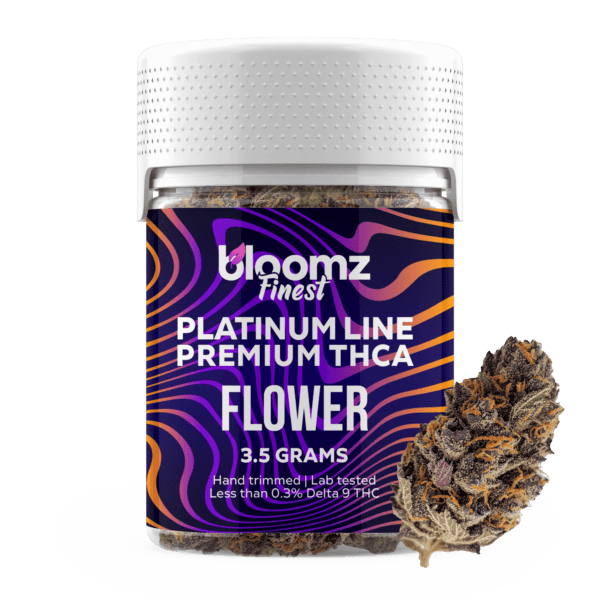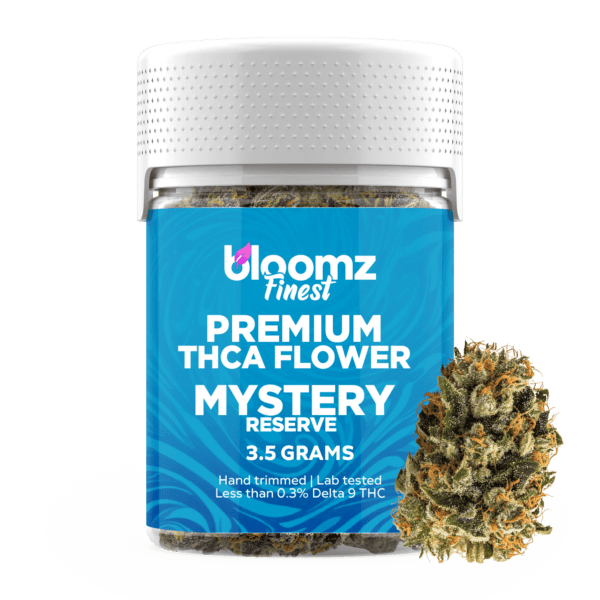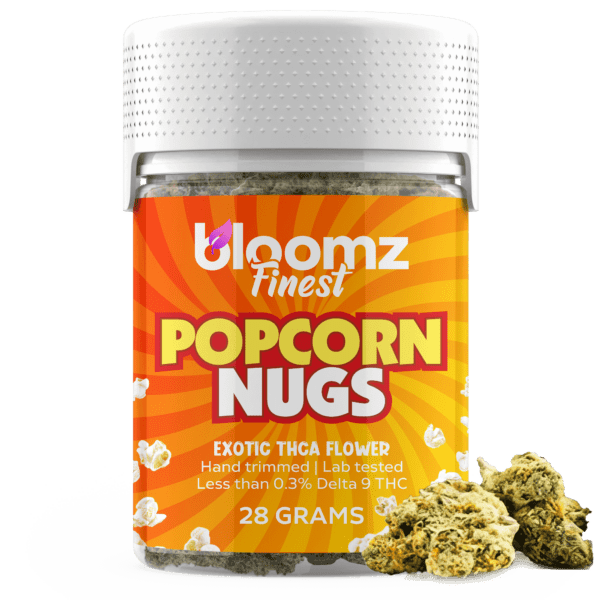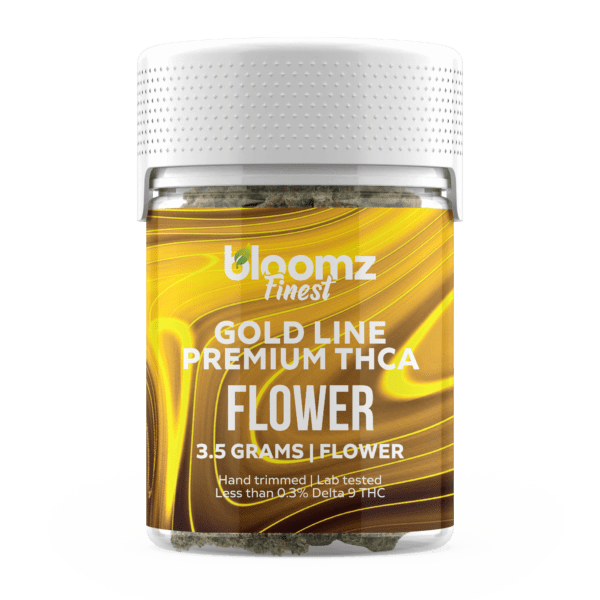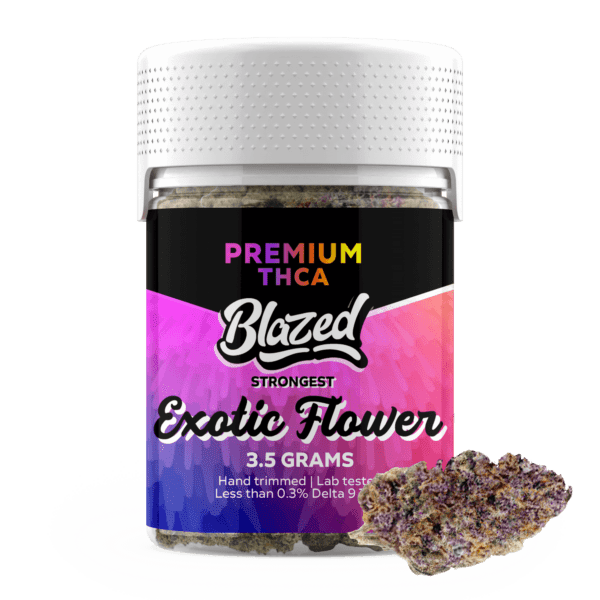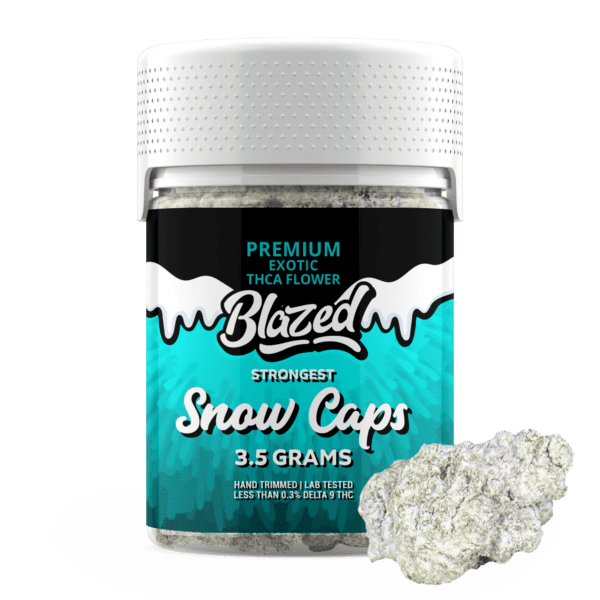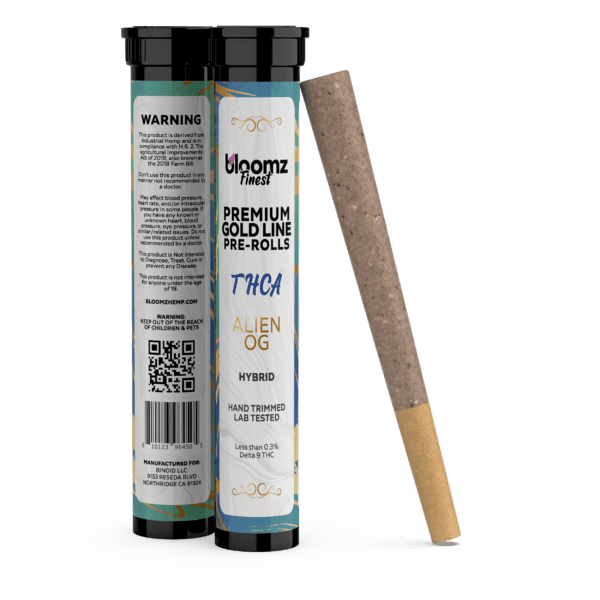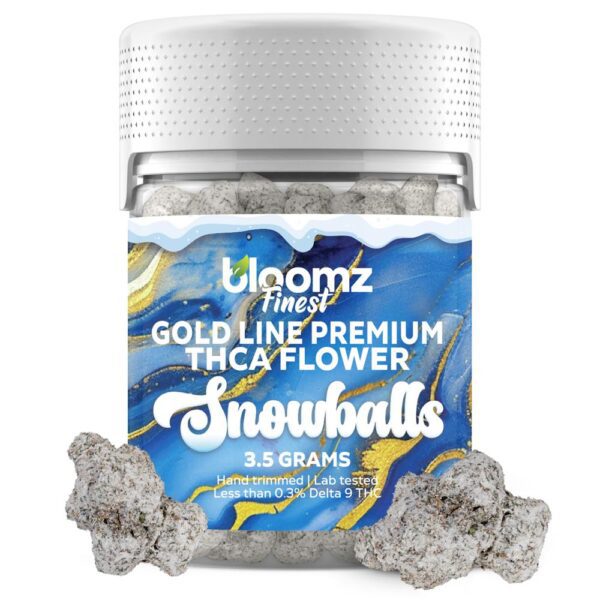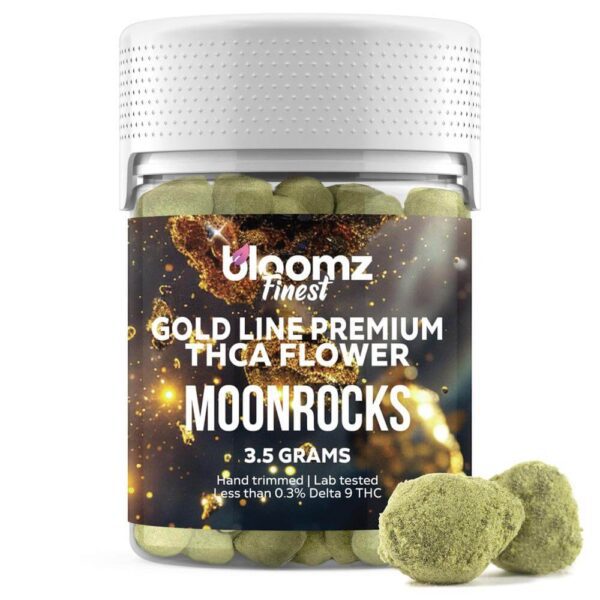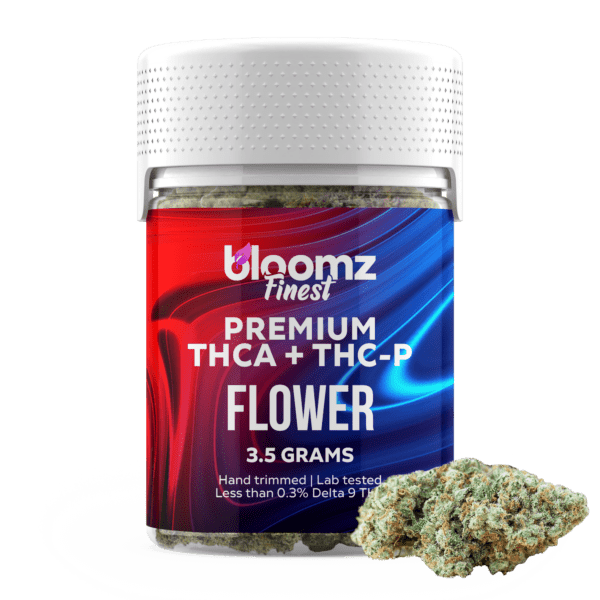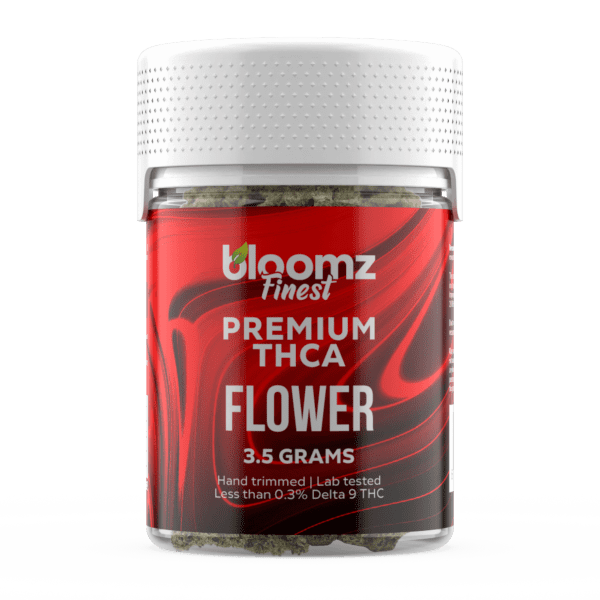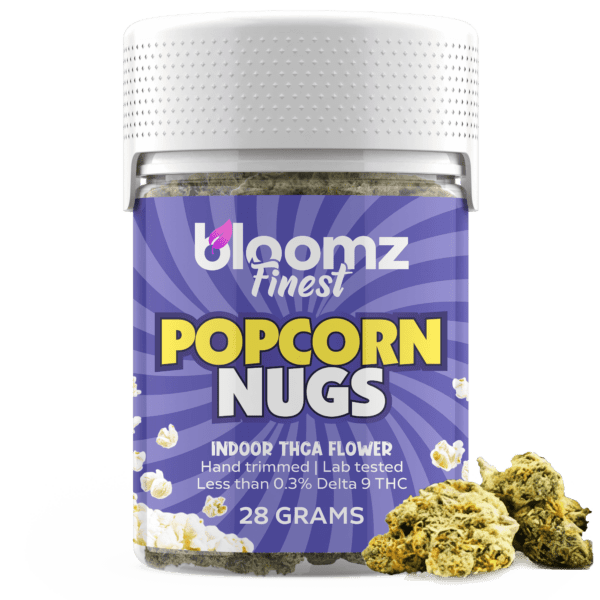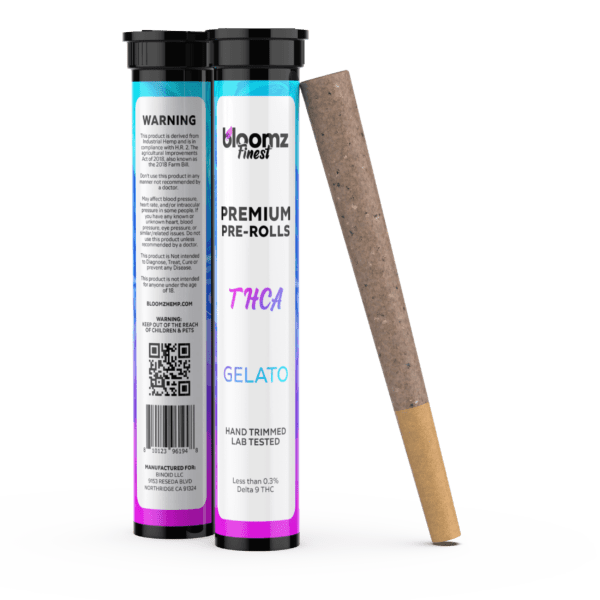The world of cannabis is in a constant state of evolution, with new products and consumption methods emerging at a rapid pace. This dynamic landscape offers enthusiasts an ever-expanding array of choices, each with its own unique characteristics and appeal. As the market matures, the ways in which consumers can access these products have also diversified, presenting a modern crossroads for procurement. The journey to acquiring cannabis products is no longer a one-size-fits-all experience; it has branched into distinct paths, each offering a different set of advantages and considerations.
Navigating this new terrain requires a deeper understanding of the available options, allowing for a more informed and personalized purchasing decision. The choice between a traditional, in-person experience and the vast, digital marketplace has become a central theme in the contemporary cannabis narrative. This decision is not merely about convenience; it encompasses a range of factors from product selection and expert guidance to privacy and accessibility. Ultimately, the path you choose will significantly shape your overall experience with the ever-evolving world of cannabis.
TO BUY THCA FLOWER CLICK HERE
Gaining a Better Idea on What Cannabis Dispensaries and Online Cannabis/Hemp Shops Are and Their Purposes
The proliferation of cannabis and hemp products has given rise to two primary retail models: the traditional brick-and-mortar dispensary and the burgeoning online marketplace. Each serves as a vital conduit between producers and consumers, yet they operate under different frameworks and cater to distinct consumer preferences and needs. The dispensary offers a tangible, sensory-rich environment where customers can interact directly with products and knowledgeable staff, fostering a sense of community and immediate gratification.
This model is deeply rooted in the history of legalized cannabis, evolving from early medicinal collectives to the sophisticated retail establishments seen today. They are often subject to stringent state and local regulations, which govern everything from product testing and packaging to the physical security of the premises. In contrast, online cannabis and hemp shops represent the digital frontier of the industry, offering a level of convenience and selection that is difficult for physical stores to match. These e-commerce platforms provide a discreet and accessible way for consumers to explore a vast catalog of products from the comfort of their own homes.
They leverage the power of the internet to reach a broad customer base, often transcending the geographical limitations of their physical counterparts. The legal landscape for online sales, particularly for hemp-derived products, is shaped by federal legislation like the 2018 Farm Bill, which created a national market for hemp and its derivatives. This has allowed online retailers to flourish, providing consumers with an unprecedented level of choice and competitive pricing.
Understanding Cannabis Dispensaries and Their Purpose
A cannabis dispensary is a state-licensed and regulated retail establishment where consumers can legally purchase cannabis products for either recreational or medicinal use. These physical storefronts serve as the primary point of access to the legal cannabis market in states where it has been established. The core purpose of a dispensary is to provide a safe, controlled, and professional environment for the sale of cannabis. This includes ensuring that all products sold have been tested for potency and purity, are properly labeled, and are sold in child-resistant packaging. Dispensaries play a crucial role in the “seed-to-sale” tracking systems that many states have implemented, which monitor the entire lifecycle of a cannabis plant from cultivation to final sale.
The operational framework of a dispensary is heavily dictated by state and local regulations. These laws determine everything from the hours of operation and the types of products that can be sold to the security measures that must be in place. For instance, most dispensaries are required to have extensive video surveillance systems, secure product storage areas, and strict age verification protocols to prevent sales to minors. The staff, often referred to as “budtenders,” are typically required to undergo training on product knowledge, responsible vending practices, and the specific regulations of their jurisdiction. This ensures that they can provide accurate information and guidance to customers, helping them navigate the often-complex world of cannabis products.
The purpose of a dispensary extends beyond simply selling cannabis; it also serves as an educational resource for the community. Budtenders are often well-versed in the various cannabinoids, terpenes, and consumption methods, and can help customers make informed decisions based on their individual preferences and desired effects. This one-on-one interaction is a key differentiator for dispensaries and a primary reason why many consumers prefer the in-person buying experience. It allows for a level of personalized service that is difficult to replicate in an online environment. The ability to ask questions, receive tailored recommendations, and physically inspect products before purchase provides a level of confidence and assurance for many consumers.
Furthermore, dispensaries contribute to the local economy by creating jobs and generating tax revenue. The taxes collected from cannabis sales are often earmarked for specific public services, such as education, infrastructure, and public health programs. This economic impact is a significant aspect of the broader push for cannabis legalization and helps to integrate the industry into the fabric of the local community. By operating as legitimate, tax-paying businesses, dispensaries help to destigmatize cannabis and demonstrate the benefits of a regulated market. They are often active members of their local business communities, participating in local events and contributing to charitable causes.
The product selection at a dispensary is typically curated to reflect the preferences of the local market and the specific regulations of the state. While the selection may not be as vast as what can be found online, it is often of high quality and has been vetted to meet the state’s safety standards. Dispensaries typically carry a range of products, including cannabis flower, concentrates, edibles, tinctures, and topicals. This variety allows consumers to explore different consumption methods and find the products that best suit their needs. The in-person nature of the dispensary also allows for the sale of products that may be difficult to ship, such as perishable edibles or certain types of concentrates.
The social aspect of the dispensary experience is another important element of its purpose. For many, visiting a dispensary is a social activity, a chance to connect with other like-minded individuals and be a part of the local cannabis community. Some dispensaries host events, workshops, and educational seminars, further fostering this sense of community. This can be particularly valuable for new consumers who may be hesitant or unsure about where to start. The welcoming and inclusive atmosphere of many modern dispensaries helps to break down barriers and make the world of cannabis more accessible to a wider audience.
In the context of medicinal cannabis, dispensaries play an even more critical role. They provide patients with access to the specific products that have been recommended by their healthcare provider. In many states, medicinal dispensaries have different regulations than their recreational counterparts, often allowing for higher potency products and different purchasing limits. The staff at medicinal dispensaries are often trained to have a deeper understanding of the potential therapeutic applications of cannabis and can provide guidance to patients on how to use their products effectively and responsibly. This specialized knowledge and focus on patient care are essential to the purpose of a medicinal dispensary.
The dispensary also serves as a gatekeeper to the legal market, helping to ensure that cannabis products are not diverted to the illicit market. The strict inventory control and tracking systems that are in place make it difficult for products to be sold “out the back door.” This helps to keep cannabis out of the hands of minors and ensures that all sales are conducted in a safe and legal manner. The presence of a well-regulated dispensary system is a key component of a successful cannabis legalization framework and helps to undermine the illicit market by providing a safe and reliable alternative.
Moreover, the physical presence of a dispensary can have a positive impact on the surrounding neighborhood. Many dispensaries are located in well-maintained, professional storefronts that contribute to the overall aesthetic of the area. They are often required to have robust security measures in place, which can help to deter crime in the vicinity. By operating as responsible and law-abiding businesses, dispensaries can become valued members of their local communities and help to change outdated perceptions about the cannabis industry. The normalization of cannabis through the establishment of professional retail outlets is an important step in the long-term success of the legal market.
Finally, the purpose of a dispensary is to provide a platform for innovation and product development. By interacting directly with consumers, dispensaries can gather valuable feedback on product preferences and emerging trends. This information can then be shared with cultivators and product manufacturers, helping to drive innovation and the creation of new and exciting products. The dispensary serves as a crucial link in the cannabis supply chain, connecting the dots between the people who grow the plant, the people who turn it into products, and the people who ultimately consume it. This feedback loop is essential for the continued growth and evolution of the cannabis industry.
Understanding Online Cannabis/Hemp Shops and Their Purpose
Online cannabis and hemp shops are e-commerce platforms that specialize in the sale of cannabis and hemp-derived products directly to consumers through the internet. These digital storefronts have emerged as a powerful force in the industry, offering a convenient, discreet, and often more affordable alternative to traditional brick-and-mortar dispensaries. The primary purpose of an online shop is to provide a wide selection of products to a broad customer base, often transcending the geographical limitations of physical retail locations. They leverage the power of the internet to connect consumers with a vast network of producers and manufacturers, creating a competitive marketplace that benefits the end-user.
The operational model of an online shop is fundamentally different from that of a dispensary. Instead of a physical storefront, they operate through a website or a dedicated app. This allows them to significantly reduce their overhead costs, as they do not have to pay for rent, utilities, and the extensive staffing required to run a physical retail location. These cost savings are often passed on to the consumer in the form of lower prices. Online shops also have the ability to carry a much larger inventory than a physical store, as they are not limited by shelf space. This results in a wider selection of products, including a greater variety of strains, brands, and product types.
The legal framework for online cannabis and hemp shops is largely shaped by the 2018 Farm Bill, which federally legalized the cultivation and sale of hemp and its derivatives, provided they contain less than 0.3% Delta 9 THC on a dry weight basis. This landmark legislation created a national market for hemp-derived products, such as CBD oil, edibles, and, more recently, THCA flower. This has allowed online retailers to ship these products to customers in most states, although some states have enacted their own restrictions on the sale of certain hemp-derived cannabinoids. The legality of online sales for marijuana-derived products, however, remains much more complex, as marijuana is still a controlled substance at the federal level.
One of the primary purposes of an online shop is to provide a convenient and accessible way for consumers to purchase cannabis and hemp products. This is particularly beneficial for individuals who may not have easy access to a local dispensary, either due to geographical location or mobility issues. The ability to browse and purchase products from the comfort of one’s own home is a major draw for many consumers. Online shops are typically open 24/7, allowing customers to shop at their own convenience. The ordering process is usually straightforward, and products are delivered discreetly to the customer’s doorstep.
Another key purpose of online shops is to offer a greater degree of privacy and discretion than a physical dispensary. Some consumers may not feel comfortable being seen entering a dispensary, particularly in communities where there is still a stigma associated with cannabis use. Online shopping allows these individuals to purchase products without having to interact with anyone in person. The packaging is typically discreet, with no indication of the contents inside. This level of privacy is a significant advantage for many consumers and a key reason why they choose to shop online.
Online shops also serve as a valuable educational resource, providing detailed information about the products they sell. Most online retailers have comprehensive product descriptions that include information about the strain, cannabinoid and terpene profiles, cultivation methods, and suggested uses. They often feature customer reviews and ratings, which can provide valuable insights into the quality and effects of a particular product. Many online shops also have blogs and other educational resources that can help consumers learn more about the world of cannabis and hemp. This wealth of information empowers consumers to make more informed purchasing decisions.
Furthermore, online shops foster a competitive marketplace that can lead to better quality products and more innovative offerings. With a national customer base, online retailers are constantly competing with one another to offer the best products at the most competitive prices. This drives innovation and encourages producers to focus on quality and consistency. The online marketplace also provides a platform for smaller, craft producers to reach a wider audience, which can lead to a more diverse and interesting product selection. This level of competition ultimately benefits the consumer, who has access to a wider range of high-quality products at a variety of price points.
The customer service experience at an online shop is different from that of a dispensary, but it can be just as effective. Most online retailers have dedicated customer service teams that can be reached via email, phone, or live chat. These representatives can answer questions, provide product recommendations, and assist with any issues that may arise with an order. While it may not be the same as a face-to-face interaction with a budtender, online customer service can still be a valuable resource for consumers. Many online shops also have detailed FAQ sections and other resources that can help customers find the answers they are looking for.
The logistics of an online shop are centered around order fulfillment and shipping. Once an order is placed, it is picked, packed, and shipped from a central warehouse or fulfillment center. The shipping process is typically fast and reliable, with most orders being delivered within a few business days. Online retailers use a variety of shipping carriers and offer a range of shipping options to meet the needs of their customers. The discreet packaging ensures that the products arrive safely and securely, without drawing any unwanted attention.
Finally, the purpose of an online cannabis and hemp shop is to provide a platform for the continued growth and normalization of the industry. By operating as professional and reliable e-commerce businesses, they help to legitimize the sale of cannabis and hemp products. They provide a safe and legal alternative to the illicit market, and they contribute to the economy through job creation and tax revenue. The convenience, selection, and privacy offered by online shops are helping to make cannabis and hemp more accessible to a wider audience, which is a crucial step in the long-term success of the legal market.
Exploring the Realm of THCA Flower
In the ever-expanding universe of hemp-derived products, a new star has been rapidly ascending, capturing the attention and curiosity of enthusiasts and connoisseurs alike: THCA flower. This unique and fascinating product occupies a compelling space in the market, bridging the gap between traditional cannabis and federally legal hemp. Its rise to prominence is a testament to the ingenuity of cultivators and the evolving legal landscape that governs the industry.
For many people, THCA flower represents a novel and exciting way to experience the nuanced and complex world of the cannabis plant, offering a profile of effects and a level of quality that was previously only available in state-licensed dispensaries. The intrigue surrounding THCA flower is multifaceted, encompassing its unique chemical properties, its legal status, and the diverse range of consumption methods it accommodates.
The Crafting of THCA Flower: A Step-by-Step Process
The creation of high-quality THCA Flower is a meticulous and science-driven process that begins long before the first seed is planted. It is a delicate dance between genetics, cultivation techniques, and post-harvest handling; all aimed at maximizing the production of Tetrahydrocannabinolic acid (THCA) while keeping the Delta 9 THC content below the legal limit of 0.3%. The result is a product that is visually and aromatically indistinguishable from traditional cannabis flower, yet compliant with federal law. The process can be broken down into the following key steps:
Genetic Selection: The journey begins with the careful selection of cannabis genetics that have a natural predisposition to produce high levels of THCA and low levels of Delta 9 THC. Breeders and cultivators spend years developing and stabilizing these unique cultivars, cross-breeding different strains to achieve the desired cannabinoid and terpene profiles. This is a highly specialized field that requires a deep understanding of plant genetics and a keen eye for desirable traits.
Cultivation: Once the right genetics have been selected, the cultivation process begins. THCA flower can be grown in a variety of environments, including indoor, outdoor, and greenhouse settings. Each environment has its own set of advantages and challenges, and the choice of cultivation method will have a significant impact on the final product. Indoor cultivation allows for a high degree of control over environmental factors such as light, temperature, and humidity, which can lead to a more consistent and high-quality product. Outdoor cultivation, on the other hand, can produce larger yields and may be more cost-effective.
Harvesting: The timing of the harvest is critical to maximizing the THCA content of the flower. As the cannabis plant matures, the cannabinoids and terpenes develop and change. Cultivators must carefully monitor the development of the trichomes, the tiny, crystal-like glands on the surface of the flower that produce the majority of the plant’s cannabinoids. Harvesting at the peak of maturity ensures that the THCA levels are at their highest and the Delta 9 THC levels are still within the legal limit.
Drying and Curing: After harvesting, the flower is carefully dried and cured. This is a crucial step that has a significant impact on the final quality of the product. The drying process removes most of the moisture from the flower, while the curing process allows the cannabinoids and terpenes to fully develop and mature. A slow and controlled cure is essential for preserving the delicate aromas and flavors of the flower and ensuring a smooth and enjoyable experience.
Testing and Compliance: Throughout the entire process, the THCA flower is rigorously tested to ensure that it meets all legal and quality standards. Samples are sent to third-party laboratories to be tested for cannabinoid potency, terpene profile, and the presence of any contaminants such as pesticides, heavy metals, or mold. This testing is essential for ensuring the safety and compliance of the final product.
Unlocking the Potential: How to Use THCA Flower
The versatility of THCA flower is one of its most appealing attributes. It can be used in a variety of ways, each offering a different experience and level of intensity. The most common methods of consumption involve the application of heat, which triggers a process called decarboxylation. This chemical reaction converts the non-intoxicating THCA into the well-known intoxicating cannabinoid, Delta 9 THC. The choice of consumption method will largely depend on personal preference, desired effects, and the equipment available.
The most traditional and widely practiced method of consuming THCA Flower is through smoking. This can be done in a variety of ways, including rolling it into a joint, packing it into a pipe, or using a water pipe, also known as a bong. When the flower is ignited, the heat instantly decarboxylates the THCA, releasing the Delta 9 THC in the form of smoke, which is then inhaled. Smoking provides a rapid onset of effects, typically within minutes, making it a popular choice for those seeking immediate results. The experience can be further enhanced by the rich flavors and aromas of the terpenes, which are also released during the combustion process.
Vaping has emerged as a popular alternative to smoking, offering a potentially less harsh and more flavorful experience. A dry herb vaporizer heats the THCA flower to a temperature that is hot enough to decarboxylate the THCA and vaporize the cannabinoids and terpenes, but not hot enough to cause combustion. This results in a smooth and flavorful vapor that is inhaled instead of smoke. Vaping is often preferred by those who are sensitive to the harshness of smoke or who want to experience the full spectrum of flavors that a particular strain has to offer. The onset of effects is similar to smoking, making it another effective method for achieving rapid results.
For those who prefer not to inhale, THCA flower can also be used to create edibles. This involves first decarboxylating the flower in an oven at a low temperature, and then infusing it into a fat, such as butter or oil. The infused fat can then be used to create a wide variety of edible products, from baked goods like brownies and cookies to savory dishes and infused beverages. The effects of edibles are typically much more potent and longer-lasting than those of smoking or vaping, but they also have a much slower onset, often taking anywhere from 30 minutes to two hours to kick in. This makes it important to start with a low dose and wait for the full effects to be felt before consuming more.
A Spectrum of Choices: The Different Kinds of THCA Flower
The world of THCA flower is as diverse and varied as the cannabis plant itself. From the meticulously cultivated indoor varieties to the sun-kissed outdoor crops, there is a type of THCA flower to suit every preference and budget. The different types of flower are often categorized based on their cultivation method, bud size, and preparation, each offering a unique set of characteristics and a different overall experience:
Indoor Flower: Widely regarded as the pinnacle of quality, indoor-grown THCA flower is cultivated in a highly controlled environment where every aspect of the growing process can be meticulously managed. From the intensity and spectrum of the lighting to the precise temperature and humidity levels, indoor cultivation allows growers to create the optimal conditions for the cannabis plant to thrive. This level of control results in a product that is typically more potent, flavorful, and visually appealing than its outdoor-grown counterpart. The buds are often dense, frosty with trichomes, and bursting with a complex array of aromas and flavors.
Outdoor Flower: Grown under the natural light of the sun, outdoor THCA flower offers a more rustic and natural expression of the cannabis plant. While it may not have the same level of visual perfection as indoor flower, it can still be of excellent quality and often comes at a more affordable price point. The larger growing space and natural sunlight can lead to larger yields, and some connoisseurs believe that the full spectrum of the sun’s light can produce a more complex and nuanced terpene profile. Outdoor flower is a great option for those who appreciate a more natural and sun-grown product.
Flower Smalls: As the name suggests, “smalls” are smaller-sized buds that are typically harvested from the lower parts of the cannabis plant. While they may not have the same “bag appeal” as the larger, top-shelf colas, they are often of the same quality and potency. Smalls are a great option for those who are looking for a high-quality product at a more budget-friendly price. They are perfect for grinding up and using in a vaporizer or for rolling into joints, where the size of the individual buds is less important.
Pre-Rolls: For those who value convenience and ease of use, THCA pre-rolls are an excellent choice. These are ready-to-smoke joints that have been expertly rolled by a machine or by hand, ensuring a consistent and enjoyable experience every time. Pre-rolls are a great option for those who are new to smoking or who simply don’t want to go through the hassle of grinding and rolling their own. They are also a great way to sample a new strain without having to commit to a larger quantity of flower.
The Rise of a Star: Why THCA Flower Has Gained Popularity
The meteoric rise in popularity of THCA flower can be attributed to a confluence of legal, cultural, and market forces. At the forefront of this trend is the 2018 Farm Bill, the landmark piece of legislation that created a clear legal distinction between hemp and marijuana. By defining legal hemp as cannabis that contains less than 0.3% Delta 9 THC on a dry weight basis, the Farm Bill inadvertently created a pathway for the legal production and sale of THCA flower. This is because THCA itself is not Delta 9 THC, and as long as the flower meets the legal definition of hemp, it can be sold and shipped to most states. This legal ambiguity has been a major driver of the product’s popularity, as it provides a federally legal way for consumers to experience the effects of traditional cannabis.
The appeal of THCA flower also lies in its striking similarity to traditional marijuana. In terms of appearance, aroma, and flavor, high-quality THCA flower is virtually indistinguishable from the top-shelf products found in state-licensed dispensaries. The rich terpene profiles and dense, trichome-covered buds provide a sensory experience that is familiar and highly sought after by cannabis enthusiasts. This has made THCA flower a popular choice for those who live in states where recreational cannabis is not yet legal, as it provides a legal and accessible alternative that does not compromise on quality.
Furthermore, the versatility of THCA flower has contributed to its widespread appeal. As previously discussed, it can be smoked, vaped, or used to make edibles, providing a range of consumption options to suit different preferences. This flexibility has made it an attractive option for both new and experienced consumers. The ability to control the experience through the chosen consumption method is a significant advantage, and the fact that the effects are so similar to those of traditional cannabis has made it an easy transition for many.
The growth of the online marketplace has also played a pivotal role in the rise of THCA flower. The ability to purchase high-quality flower online and have it delivered discreetly to your doorstep has made it more accessible than ever before. This has been particularly beneficial for those who do not have a local dispensary or who prefer the privacy and convenience of online shopping. The competitive nature of the online market has also led to a wider selection of products and more affordable prices, further fueling the demand for THCA flower.
Finally, the increasing acceptance and normalization of cannabis in society has created a more receptive audience for products like THCA flower. As more people become educated about the potential benefits and responsible use of cannabis, the stigma that has long been associated with the plant is beginning to fade. This has created a more open and curious consumer base that is eager to explore new and innovative products. The fact that THCA flower is derived from federally legal hemp has also made it a more approachable option for those who may be hesitant to try traditional marijuana.
Recommended products
The Symphony of Effects: Strained and Unstrained THCA Flower
The overall effects of THCA flower are largely determined by its cannabinoid and terpene profile, which can vary significantly from one strain to another. When heated, the THCA in the flower converts to Delta 9 THC, which is responsible for the euphoric and relaxing effects that are commonly associated with cannabis. However, the experience is much more nuanced than that, and the specific combination of cannabinoids and terpenes in a particular strain will have a significant impact on the overall effect. This is often referred to as the “entourage effect,” the theory that all of the compounds in the cannabis plant work together synergistically to produce a more complete and well-rounded experience.
THCA flower with a specific strain name, such as “OG Kush” or “Sour Diesel,” has been bred to have a particular cannabinoid and terpene profile that is known to produce a certain set of effects. For example, strains that are high in the terpene myrcene are often associated with relaxing and sedative effects, while strains that are high in limonene are known for their uplifting and mood-elevating properties. By choosing a specific strain, consumers can have a better idea of the type of experience they can expect. This allows for a more tailored and personalized experience, and is a major reason why many consumers prefer to purchase strained flower.
On the other hand, some THCA flower may be sold without a specific strain name, or as a blend of different strains. While this type of flower will still produce the general effects of Delta 9 THC, the experience may be less predictable and more generalized. This is not necessarily a bad thing, as some consumers may not have a specific preference for one type of effect over another. Unstrained flower can also be a more affordable option, and it can be a good choice for those who are new to cannabis and are still exploring their preferences. The effects will still be enjoyable and relaxing, but they may lack the specific nuances and targeted effects of a well-defined strain. Ultimately, the choice between strained and unstrained THCA flower comes down to personal preference and the type of experience that the consumer is looking for.
Why Can THCA Flower Be Purchased at Either a Dispensary or an Online Shop?
The dual availability of THCA flower in both dispensaries and online shops is a direct result of its unique legal standing, which straddles the line between the highly regulated state-level marijuana markets and the federally legal hemp industry. This duality stems from the chemical nature of THCA itself and the specific language used in the 2018 Farm Bill. The bill legalized hemp and its derivatives by defining them as any part of the cannabis plant with a Delta-9 THC concentration of not more than 0.3% on a dry weight basis. Since THCA is the acidic precursor to Delta 9 THC and is not psychoactive in its raw form, flower that is rich in THCA but low in Delta 9 THC technically meets the federal definition of hemp. This has opened the door for it to be sold through online hemp retailers and shipped across state lines, much like any other legal hemp product.
However, the situation is more complex than it appears on the surface. While federally legal under the Farm Bill’s definition, the conversion of THCA to the intoxicating Delta 9 THC when heated has led to a great deal of debate and varying interpretations at the state level. Some states have taken a “total THC” approach, where the potential THC content (including the amount that can be converted from THCA) is considered when determining legality. In these states, high-THCA flower may be treated as marijuana and restricted to sale within licensed dispensaries. This creates a patchwork of regulations across the country, where the same product may be considered legal hemp in one state and illegal marijuana in another. This legal gray area is the primary reason why THCA flower can be found in both retail channels.
The presence of THCA flower in licensed dispensaries is a more straightforward matter. These establishments are permitted to sell marijuana products that exceed the 0.3% Delta 9 THC limit, and THCA-rich flower falls squarely within this category, as it is a natural component of the cannabis plant. For dispensaries, THCA is not a loophole; it is simply one of the many cannabinoids present in the products they are licensed to sell. They often market these products based on their total potential THC content, providing consumers with a clear understanding of their intoxicating potential. The sale of THCA flower in dispensaries is subject to the same strict regulations as all other cannabis products, including lab testing, packaging requirements, and age verification.
Recommended products
Breaking Down the THCA Flower Buying Matchup: Dispensaries vs. Online Shops
The decision of where to purchase your THCA Flower is a significant one, with each option offering a distinct set of advantages and disadvantages. The choice between the traditional, in-person experience of a dispensary and the vast, digital marketplace of an online shop will ultimately depend on your individual priorities, preferences, and location. Both channels provide access to high-quality THCA flower, but the path to purchase and the overall customer experience can be vastly different. A dispensary offers the immediate gratification of walking out with a product in hand and the benefit of face-to-face interaction with knowledgeable staff. This can be particularly valuable for those who are new to THCA flower or who have specific questions they would like answered.
In contrast, online shops offer an unparalleled level of convenience and selection. The ability to browse a wide variety of products from the comfort of your own home and have them delivered discreetly to your doorstep is a major draw for many consumers. The online marketplace is also highly competitive, which can lead to more affordable prices and a greater diversity of product offerings. However, the lack of in-person interaction and the inability to physically inspect the product before purchase can be a drawback for some. The shipping time, while typically fast, also means that you will have to wait a few days to receive your order.
Contender #1: Dispensaries
Dispensaries represent the traditional and most established channel for purchasing cannabis products, including THCA flower. These state-licensed retail establishments provide a safe, regulated, and professional environment for consumers to explore and purchase a variety of cannabis and hemp-derived goods. The experience of visiting a dispensary is often characterized by a high level of customer service and a focus on education. The staff, or “budtenders,” are typically well-versed in the products they sell and can provide personalized recommendations based on your individual needs and preferences. This one-on-one interaction can be invaluable, particularly for those who are new to the world of cannabis or who are looking for a specific type of experience.
The product selection at a dispensary, while perhaps not as extensive as what can be found online, is often carefully curated and of high quality. All products sold in a dispensary must meet the strict testing and packaging requirements of the state, which provides a level of assurance and peace of mind for the consumer. The ability to physically inspect the product before purchase is another key advantage of the dispensary experience. You can see the quality of the flower, smell its aroma, and get a better sense of what you are buying. This sensory experience is an important part of the purchasing process for many cannabis enthusiasts.
Furthermore, dispensaries play a vital role in the local community. They create jobs, generate tax revenue, and contribute to the normalization of cannabis. Many dispensaries are active members of their local business communities and are committed to operating in a responsible and community-minded manner. The immediate gratification of being able to walk out of the store with your purchase in hand is another significant benefit. There is no need to wait for shipping, and you can enjoy your THCA flower the same day you buy it.
Pros & Cons
As with any purchasing decision, there are both pros and cons to buying your THCA flower from a dispensary. Understanding these can help you make a more informed choice that aligns with your personal preferences and priorities.
Pros:
Expert Guidance: The opportunity to speak with a knowledgeable budtender and receive personalized recommendations is a significant advantage.
Immediate Gratification: You can walk out of the dispensary with your THCA flower in hand, with no need to wait for shipping.
Product Inspection: The ability to physically see and smell the flower before you buy it provides a level of assurance about its quality.
Guaranteed Legality: All products sold in a licensed dispensary are guaranteed to be legal and compliant with state regulations.
Supporting Local Business: Purchasing from a local dispensary helps to support your local economy and contributes to the growth of the legal cannabis industry in your community.
In-Person Experience: For many, the social and sensory experience of visiting a dispensary is an enjoyable and important part of the purchasing process.
No Shipping Concerns: You don’t have to worry about your package being lost, stolen, or damaged during shipping.
Cons:
Higher Prices: The overhead costs of operating a physical retail location often result in higher prices compared to online shops.
Limited Selection: The product selection at a dispensary may be more limited than what is available online due to physical space constraints.
Less Privacy: Some individuals may feel uncomfortable being seen entering a dispensary, particularly in communities where there is still a stigma associated with cannabis.
Inconvenience: Visiting a dispensary requires travel and may be less convenient than shopping online, especially for those who do not live near a retail location.
Contender #2: Online Shops
Online shops have revolutionized the way many people purchase cannabis and hemp products, offering a level of convenience, selection, and privacy that is unmatched by traditional brick-and-mortar retailers. These e-commerce platforms provide a vast and ever-expanding marketplace where consumers can explore a wide variety of THCA flower from a multitude of brands and producers. The ability to shop from the comfort of your own home, at any time of day or night, is a major draw for many. The ordering process is typically simple and straightforward, and products are delivered discreetly to your doorstep, often within a few business days.
One of the most significant advantages of shopping for THCA flower online is the sheer volume of choices available. Online retailers are not limited by physical shelf space, which allows them to carry a much larger and more diverse inventory than a typical dispensary. This means you have access to a wider range of strains, potencies, and price points, making it easier to find the perfect product to suit your needs and budget. The competitive nature of the online marketplace also tends to drive down prices, making online shops a more affordable option for many consumers.
In addition to convenience and selection, online shops also offer a greater degree of privacy. For those who may not be comfortable with the in-person experience of a dispensary, online shopping provides a discreet and anonymous way to purchase THCA flower. The packaging is typically plain and unmarked, ensuring that your privacy is protected throughout the entire process. Furthermore, online shops often provide a wealth of information about their products, including detailed descriptions, customer reviews, and third-party lab reports. This transparency allows you to do your own research and make a more informed purchasing decision.
While the online shopping experience offers many benefits, it is not without its potential drawbacks. The inability to physically inspect the product before purchase can be a concern for some, as it can be difficult to judge the quality of a flower based on a picture alone. The lack of face-to-face interaction with a knowledgeable budtender can also be a disadvantage, particularly for those who are new to THCA flower or who have specific questions. Finally, you will have to wait for your order to be shipped and delivered, which means you won’t be able to enjoy your purchase immediately.
Pros & Cons
The digital marketplace of online shops offers a compelling alternative to traditional dispensaries, but it’s important to weigh the pros and cons before making a purchase. Here’s a breakdown of what you can expect when buying your THCA flower online.
Pros:
Unparalleled Convenience: The ability to shop from anywhere, at any time, and have your order delivered to your door is a major advantage.
Vast Selection: Online shops typically offer a much wider variety of strains, brands, and product types than a physical dispensary.
Competitive Pricing: The lower overhead costs and competitive nature of the online market often result in more affordable prices.
Enhanced Privacy: Online shopping provides a discreet and anonymous way to purchase THCA flower, with plain packaging for added privacy.
Abundant Information: Online retailers often provide detailed product descriptions, customer reviews, and third-party lab reports to help you make an informed decision.
Accessibility: Online shops are a great option for those who do not live near a dispensary or who have mobility issues that make it difficult to shop in person.
Promotions and Discounts: Online retailers frequently offer promotions, discounts, and loyalty programs that can help you save money on your purchases.
Direct from the Source: In some cases, you can purchase directly from the brand or cultivator, which can provide a deeper connection to the products you are buying.
Cons:
No In-Person Inspection: You cannot physically see or smell the flower before you buy it, which can make it difficult to judge its quality.
Lack of Immediate Gratification: You will have to wait for your order to be shipped and delivered, which can take several days.
Potential for Shipping Issues: There is always a risk of your package being lost, stolen, or damaged during shipping.
Less Personalized Guidance: While customer service is available, it lacks the face-to-face interaction and personalized recommendations of a budtender.
Which Choice Will You Go With for Your THCA Flower Needs?
The journey to acquiring the perfect THCA flower is as personal and unique as the effects of the flower itself. The path you choose; whether it leads you through the welcoming doors of a local dispensary or into the boundless digital aisles of an online shop, will be paved with its own distinct set of experiences and advantages. The tangible world of the dispensary offers a sense of community, the wisdom of experienced guides, and the immediate satisfaction of a product in hand.
In contrast, the virtual realm of online retail presents a universe of choice, the allure of competitive pricing, and the quiet discretion of a purchase made from the comfort of home. Ultimately, the superior option is not a universal truth but a personal one, a reflection of your individual priorities and the kind of purchasing journey that resonates most with you. Will you opt for the curated, in-person experience, or will you embrace the convenience and variety of the digital frontier?


